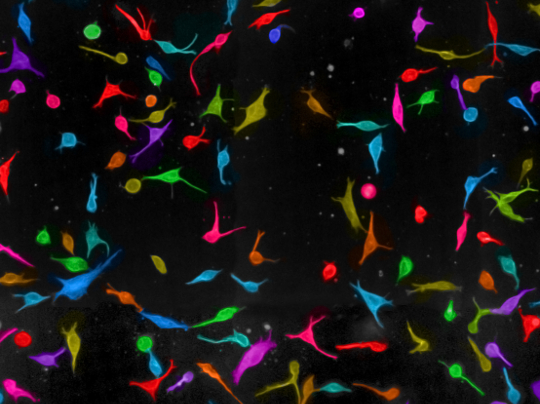A viral immunotherapy for cancer has become the first to be given the green light by European regulators.
The treatment, called Talimogene laherparepvec, or T-VEC for short, has been recommended for approval by the European Medicines Agency for use in adults with advanced melanoma.
Researchers from The Institute of Cancer Research, London, and The Royal Marsden NHS Foundation Trust led the UK arm of a major phase III trial showing that T-VEC was effective in patients.
If fully approved, T-VEC would be the first in a whole new type of cancer treatment called oncolytic immunotherapy – which targets cancer cells with viruses and directs the immune system against them.
T-VEC is a modified form of the herpes simplex virus which multiplies inside cancer cells and bursts them from within. It has been genetically engineered to produce a molecule called GM-CSF, which stimulates the immune system to attack and destroy the tumour.
It became the world’s first viral immunotherapy for skin cancer to definitively show patient benefit in May this year when the phase III clinical trial results were published in the Journal of Clinical Oncology.
Under the current approval guidelines, only adults with melanoma that cannot be removed by surgery and that has spread locally or around the body will be eligible to receive the treatment. However, T-VEC is currently in clinical trials for earlier stages of melanoma and different types of cancer. It is also being tested in combination with other cancer immunotherapies and radiotherapy.
Professor Kevin Harrington, Professor of Biological Cancer Therapies at the ICR, led the UK arm of the phase III clinical trial for T-VEC.
He said: “This is fantastic news. I have been working to develop cancer therapies based on cancer-killing viruses for two decades and it’s great to see this new type of treatment coming a step closer to benefiting patients in the clinic.
“The EMA’s announcement is an important step towards bringing new treatment options to patients with advanced melanoma – a disease that for many patients has historically been regarded as unbeatable.”
The endorsement of T-VEC by the EMA’s Committee for Medicinal Products for Human Use follows a similar recommendation by the Food and Drug Administration in the US.
Professor Paul Workman, Chief Executive of the ICR, said: “Viral immunotherapy represents a completely new way of treating cancer, so it’s extremely exciting to see T-VEC become the first treatment of this type to gain the green light from European regulators. I hope it will soon become available for patients with metastatic melanoma, to provide them with a desperately needed new treatment option.
“Researchers at the ICR have been at the vanguard of research into the use of viruses to attack cancer, and we played an important role in developing T-VEC for patients. T-VEC is a modified form of the herpes virus, and the secret of its success is its ability to launch a two-pronged attack on tumours – both killing cancer cells directly and marshalling the immune system against them. It is not only effective for patients with advanced melanoma, but also promises to have lower rates of side-effects either than traditional treatments or than some other immunotherapies.”